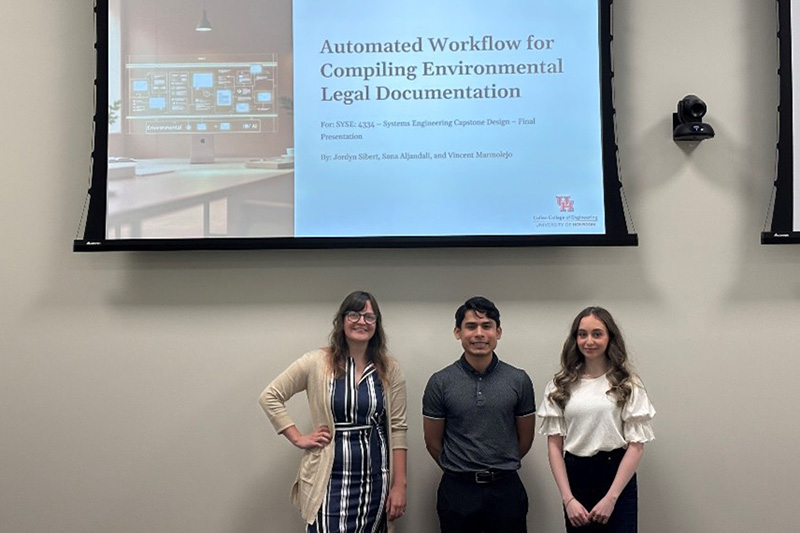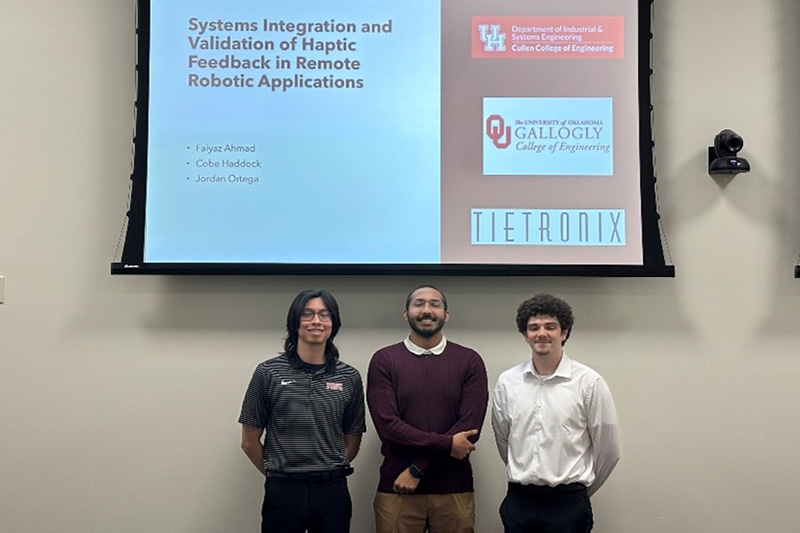Systems Engineering
Systems Engineering seniors are equipped with a diverse set of analytical, technical, and integrative skills that they apply in their capstone design projects to model, analyze, and optimize complex systems across multiple domains. These projects emphasize improving performance, reliability, and resilience while ensuring stakeholder needs, safety, and sustainability are met.
Projects start in spring only and last 1 semester. Project proposals are due mid-November. Submit your proposal here:
Student Skills:
- Systems Integration: Designing and coordinating complex systems by aligning hardware, software, people, and processes to achieve desired performance.
- Data-Driven Decision Making: Leveraging modeling, simulation, and AI/ML techniques to analyze large-scale data, predict system behavior, and support informed decisions.
- Systems Improvement: Using Lean, Six Sigma, and systems thinking to identify inefficiencies, streamline workflows, and optimize performance across interconnected processes.
- Risk and Safety Analysis: Conducting comprehensive risk assessments and safety analyses to mitigate hazards, reduce vulnerabilities, and enhance system resilience.
- System Architecture and Design: Developing system architectures and models to evaluate trade-offs, support stakeholder needs, and guide lifecycle design.
- Sustainability and Lifecycle Management: Assessing environmental, social, and economic impacts to improve system sustainability and optimize performance throughout the lifecycle.
- Additional Skills:
- Applying simulation and modeling to evaluate alternative designs and operational strategies.
- Performing cost-benefit and trade-off analyses to balance performance, risk, and resource constraints.
Previous Projects:
Automated Workflow Using AI Methods for Compiling Environmental Legal Documentation

This project successfully developed and evaluated an AI-based workflow for automating the compilation of environmental legal documentation. By leveraging structured regulatory datasets and prompt engineering techniques with large language models (LLMs), the system was able to generate SCG tables with significantly reduced manual input. Key contributions include the development of a performance-enhanced Python-OpenAI model, insights into the importance of prompt design, and an integrated systems engineering approach to guide workflow development. The automated process demonstrated improvements in documentation accuracy and consistency, particularly for federal regulatory content.
Team members: Jordyn Sibert, Sana Aljandali, Vincent Marmolejo
Systems Integration and Performance Validation of Haptic Feedback in Robotic Applications

This interdisciplinary project with Computer Engineering and Analytics (CEA) aimed to address the lack of haptic feedback in remote robotic systems. A VR-based control interface was developed to enhance human-robot interaction by providing real-time haptic feedback. Market research guided system requirements and performance metrics, modeled using SysML diagrams. Test cases validated user and performance criteria, ensuring stakeholder needs were met. The Computer Engineering team used this documentation for integration and testing, achieving successful real-time robotic arm control with responsive haptic feedback. Overall, the project demonstrated that VR-based haptic control effectively improves the usability of remote robotic systems.
Team members: Cobe Haddock, Faiyaz Ahmad, Jordan Ortega